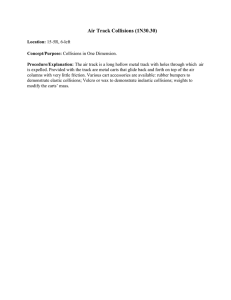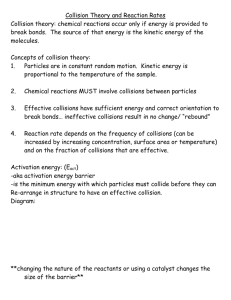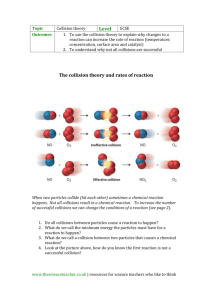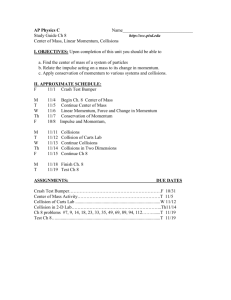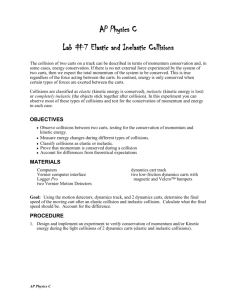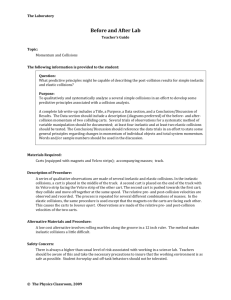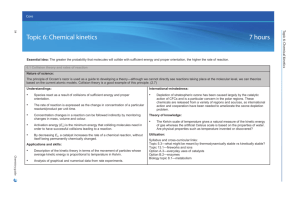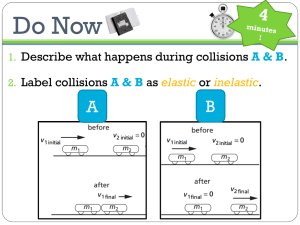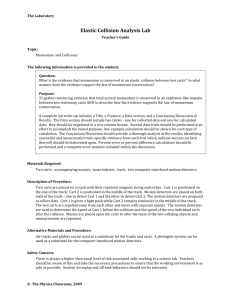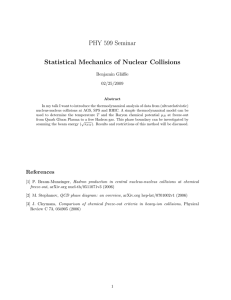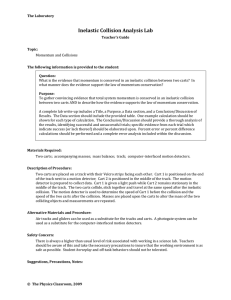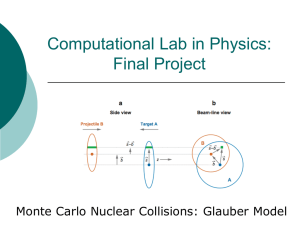Lab 5 - University of Michigan
advertisement
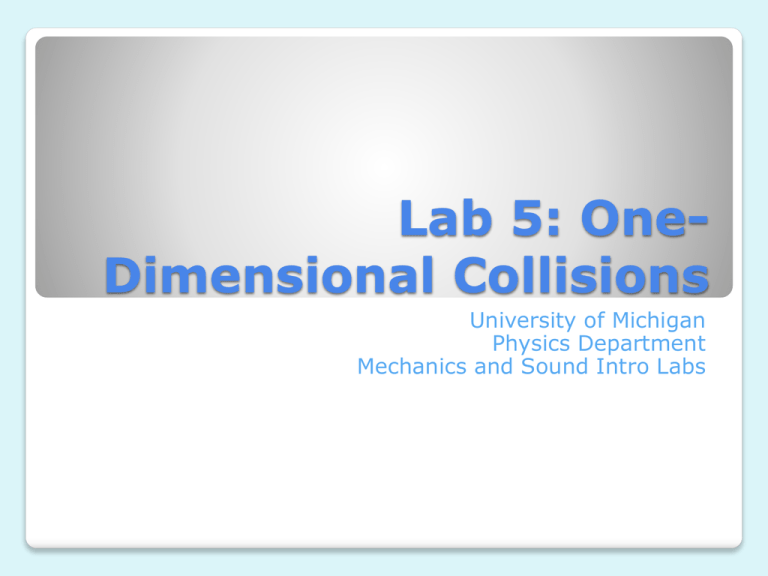
Lab 5: OneDimensional Collisions University of Michigan Physics Department Mechanics and Sound Intro Labs You are now about to undertake the study of collisions. This study consists of two labs; however, in order to better understand collisions in two dimensions, you will begin a study of rotational motion in Lab 6 before continuing the study of collisions in lab seven. You have experienced some form of collision at some point in your life, whether you bumped into someone in the hallway or used the collisions to your advantage in a game of billiards. You will now study such collisions from a physics perspective. Today’s lab makes use of the air track that you used in Lab 2. You will notice, however, that this time there are sonic rangers on both ends of the track instead of just one. This is because you will be studying the motion of two carts. To figure out which motion sensor plots which color graph on your LoggerPro® file, you can hit the ‘collect’ button and move one air track cart at a time. This allows you to identify which sensor is detecting which cart. You will also notice that your air track carts have two different kinds of bumpers, one on each side. The Velcro® bumpers, when pointed at each other, will cause the carts to stick in an inelastic collision. The metal bumpers simulate an elastic collision. You will also be asked to adjust the mass of the carts during this lab. This may be accomplished by placing slotted masses on the bolts on the side of the cart and locking them in place with the nuts provided. You can then carry on your analysis as usual. Velcro bumper Metal Bumper At the conclusion of this lab, you will have a better understanding of what physicists mean when they say that momentum is conserved and that total mechanical energy is conserved. These concepts will no doubt be helpful in your continued study of physics, and you will see them again in Lab 7 when you return to look at two-dimensional collisions. But in the mean time, you should get ready to begin studying rotational motion.
